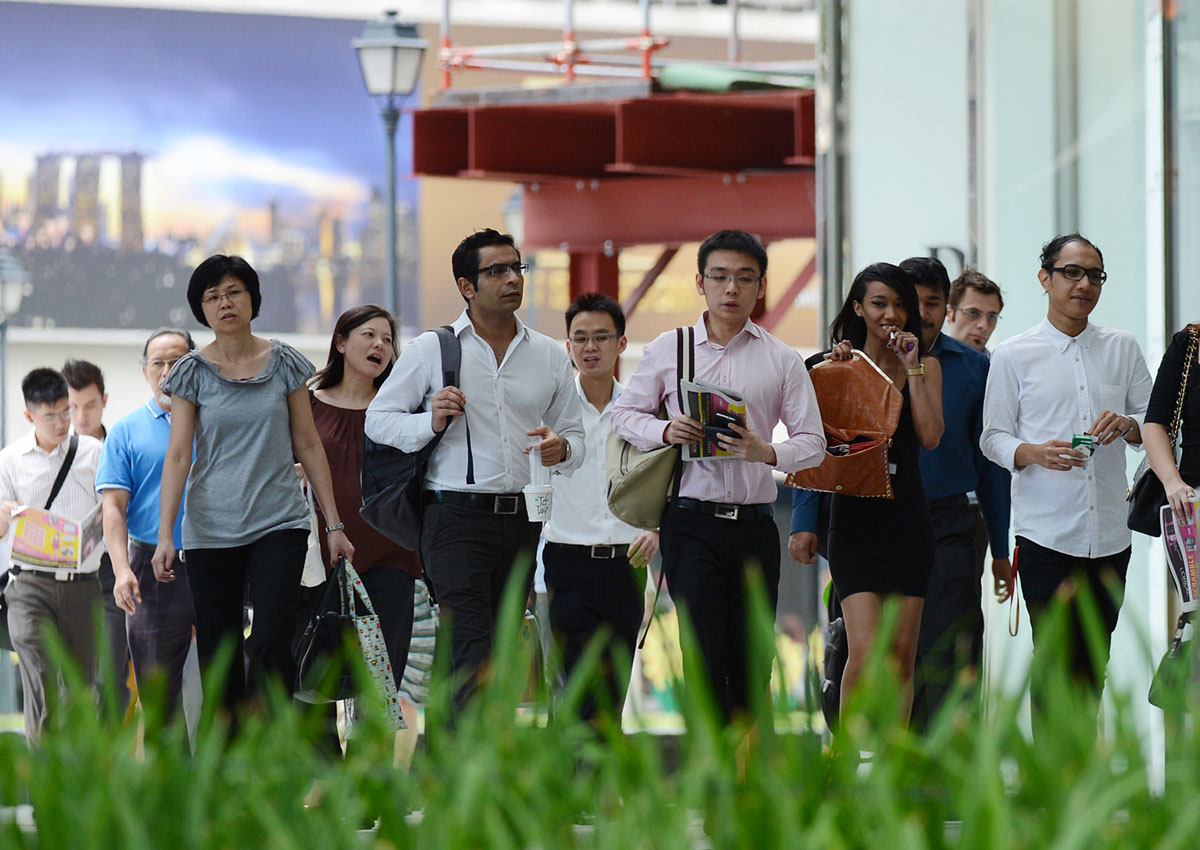The Manpower Ministry (MOM) and the Singapore National Employers Federation (SNEF) have both stressed the need to make the most of limited labour supply, in their May Day messages ahead of Sunday.
In their messages yesterday, both stressed the need for productivity growth, which averaged only 0.4 per cent per year between 2010 and 2015.
“Manpower could become the bottleneck of our future growth unless we speed up efforts to become a more manpower-lean economy and a more productive workforce,” said Manpower Minister Lim Swee Say, in his first May Day message since taking on the portfolio. He was previously labour chief for eight years.
“This is the only way to ensure that businesses can continue to grow (and) unemployment can stay low while wages… keep moving up,” he said.
“We can succeed if every employer learns to value every worker more, and every worker likewise learns to value every job better.”
Good people will always be in short supply, so tripartite partners – employers, unions and the Government – should work together to harness that resource, said Mr Lim.
Companies and unions should do their part to help workers develop their skills to their fullest potential. The Government will also strengthen policies for companies and workers, as well as beef up resources to support them.
Addressing the economic uncertainty, he said: “Working in unity, our tripartite partners have led the economy and labour force through downturns and emerged stronger and more vibrant each time, every time. I believe we can do it again.”
Singapore’s slower economic, employment and productivity growth were also highlighted by SNEF president Robert Yap in his May Day message.
Calling the need to raise productivity “urgent”, he said employers and unions must tackle three workforce demographic challenges in order to do so.
First, businesses must change their processes, use more automation and upgrade workers’ skills to counter the slowing of workforce growth to 1 per cent per year and plateauing from 2020 onwards.
Second, human resource practices should change to account for an ageing workforce – the proportion of the resident workforce aged 55 years and above rose from 13.4 per cent in 2006 to 22.3 per cent last year. Older workers should also be prepared to pick up new skills and roles.
Third, rising education levels in Singapore underline the need for better quality jobs for Singaporean professionals, managers and executives, who must also take ownership of their skills development, he said.
Dr Yap said bosses and workers will also have to contend with rapid technological advancements and new business models.
“Companies must be alert and nimble so that they can adapt to these changes and new competitive pressures.
“They must also invest in their workforce so that their workers have the capabilities to respond quickly to changing business requirements,” he said.
Calling the need to raise productivity “urgent”, Singapore National Employers Federation(SNEF) president Robert Yap in his May Day message said employers and unions must tackle three workforce demographic challenges in order to do so.
- Businesses must change their processes, use more automation and upgrade workers’ skills to counter the slowing of workforce growth to 1 per cent per year and plateauing from 2020 onwards.
- Human resource practices should change to account for an ageing workforce – the proportion of the resident workforce aged 55 years and above rose from 13.4 per cent in 2006 to 22.3 per cent last year. Older workers should also be prepared to pick up new skills and roles.
- Rising education levels in Singapore underline the need for better quality jobs for Singaporean professionals, managers and executives, who must also take ownership of their skills development.
joseow@sph.com.sg

This article was first published on April 28, 2016.
Get a copy of The Straits Times or go to straitstimes.com for more stories.






